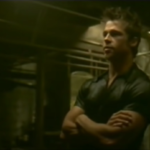Abstract: “Excision,” directed by Richard Bates Jr., is a unique entry in the horror genre that melds suburban teenage malaise with the visceral shocks of body horror. It’s a story that dives into the troubled psyche of an aspiring surgeon, Pauline, played with unsettling conviction by AnnaLynne McCord. This film dissects the horrors of mental illness, familial strife, and the desperate need for acceptance.
An Unflinching Look at a Teen’s Descent into Madness
Deconstructing the Teenage Experience: “Excision” refuses to conform to typical high school movie tropes. Instead, it presents a protagonist whose aspirations and delusions paint a grim portrait of a disturbed mind. The film’s candid portrayal of Pauline’s battle with her own psyche and her mother’s (Traci Lords) inability to connect with her adds layers to this dark coming-of-age tale.
Performances That Cut Deep
A Cast That Embodies Dysfunction: McCord’s transformative performance as Pauline is both bold and disturbing, offering a window into the soul of a character who is at once sympathetic and horrifying. Lords, as the conservative and controlling mother, delivers a powerful counterbalance, driving the narrative’s emotional tension.
Directing the Dissection of the American Family
Bates Jr.’s Vision of Suburban Horror: Richard Bates Jr. directs with a surgeon’s precision, juxtaposing sterile, sunlit suburban scenes with nightmarish sequences of bloody fantasy. His vision ensures that “Excision” operates on multiple levels, disturbing the squeamish and the stoic alike.
“Excision”: A Study of Extreme Alienation
Examining Isolation in Every Incision: The film’s exploration of alienation is not limited to Pauline’s outcast status at school but extends to her isolation within her own family and her internal struggle with her desires. It’s a brutal examination of what it means to yearn for connection and the lengths one might go to achieve it.
The Intersectionality of Horror in “Excision”
Bridging Diverse Themes Through Genre: “Excision” doesn’t shy away from confronting issues of mental health, sexuality, and body image. Bates Jr.’s film approaches these themes with a fearless narrative, ensuring it resonates with audiences who are looking for horror that reflects a wide spectrum of human experiences.
The Sensory Experience of “Excision”
Visual and Auditory Overload to Disquiet the Viewer: The film’s stark visual style contrasts sharply with the surreal, graphic imagery of Pauline’s dreams, creating a jarring and memorable aesthetic. The sound design is meticulously crafted to complement the film’s visual shocks, enhancing the unsettling atmosphere.
Final Diagnosis: A Haunting Portrait of Disturbance
Score: 4.1 out of 5 Stars “Excision” is awarded a 4.1 out of 5 stars for its daring portrayal of a troubled teenager’s descent into madness, anchored by strong performances and a fearless narrative.
Closing Thoughts: “Excision” is not for the faint of heart. It demands its audience to confront uncomfortable truths about mental illness, the struggles of adolescence, and the grotesque that can reside within suburbia. This film cuts through the surface of conventional horror to reveal something deeply unsettling about the pursuit of normalcy and the chaos that lurks beneath it. As a piece that pushes boundaries and defies easy categorization, “Excision” is a must-watch for those seeking a horror film with depth, daring, and a dose of the deranged.
Trailer:






